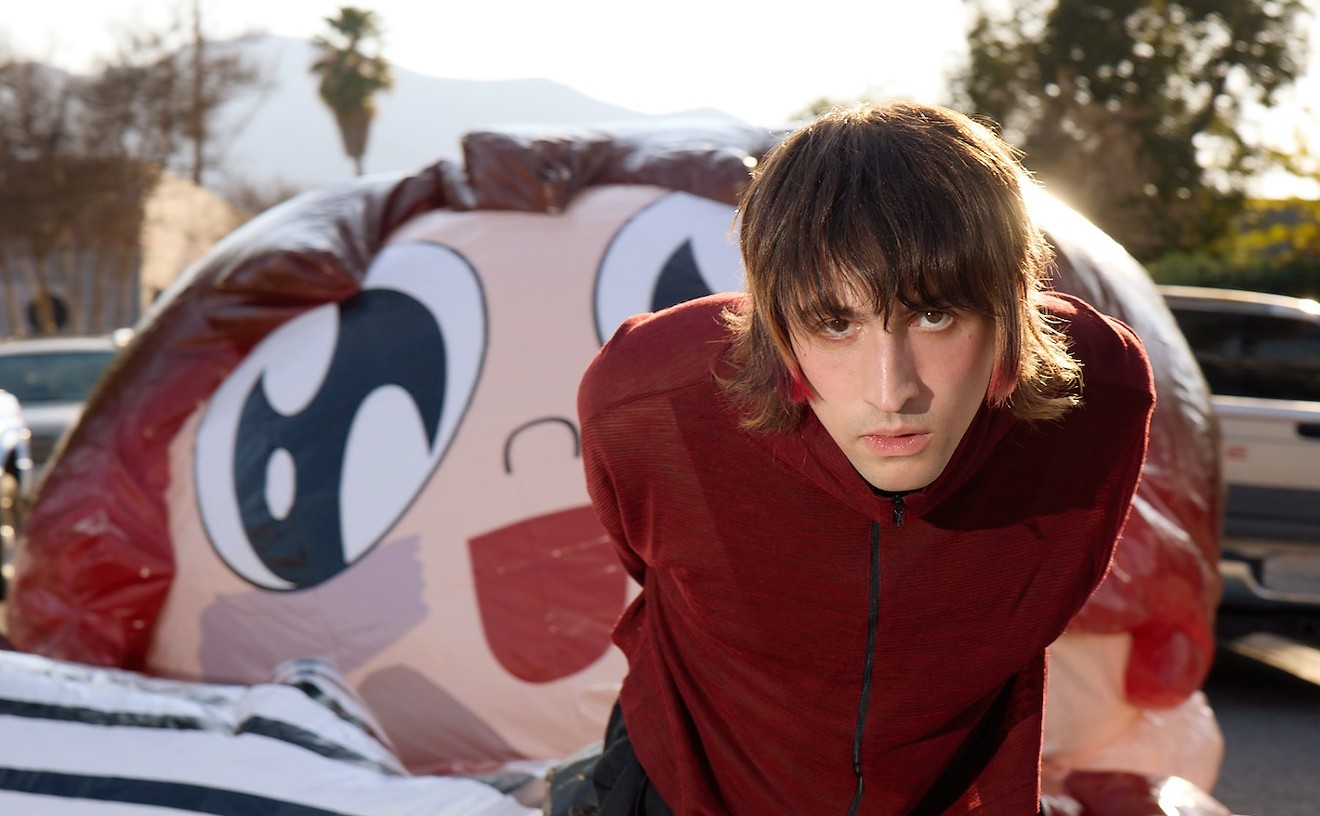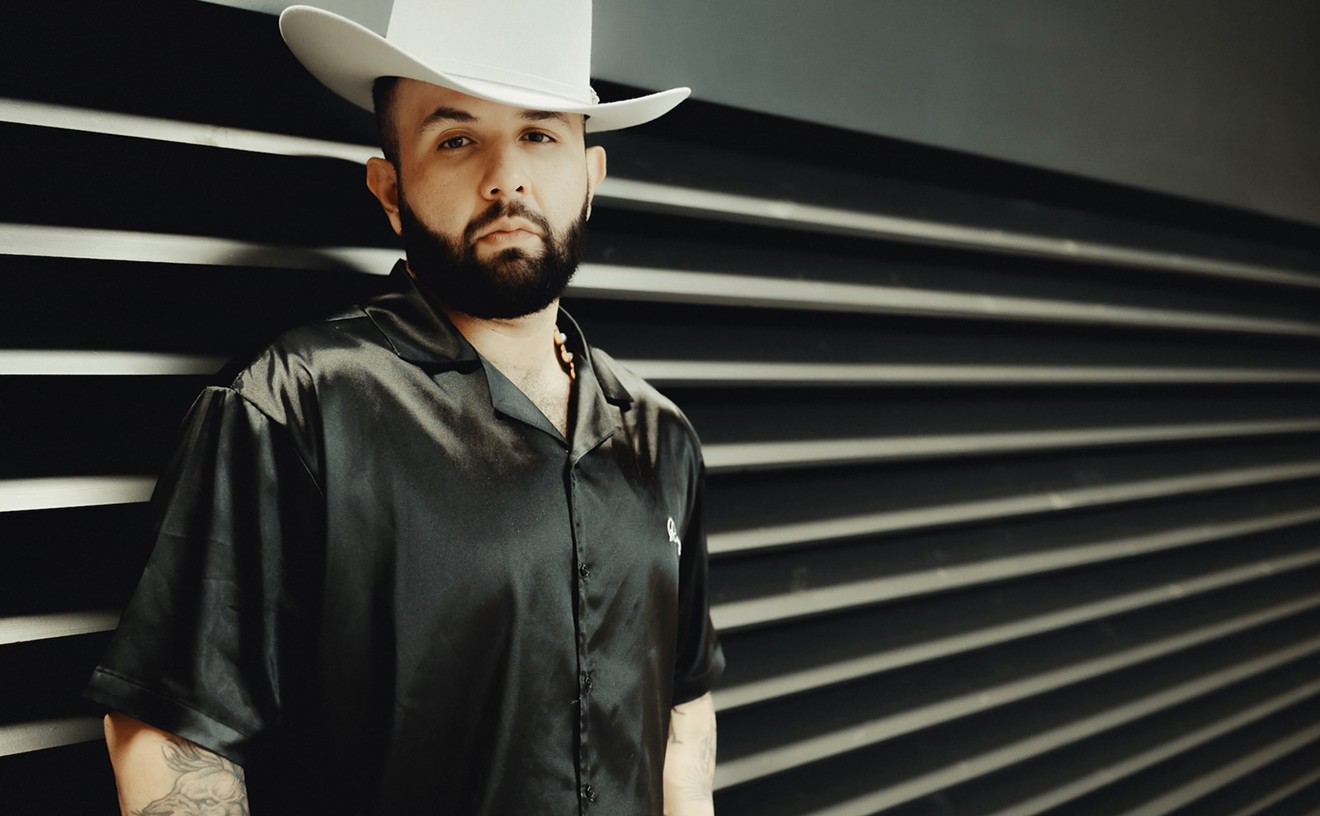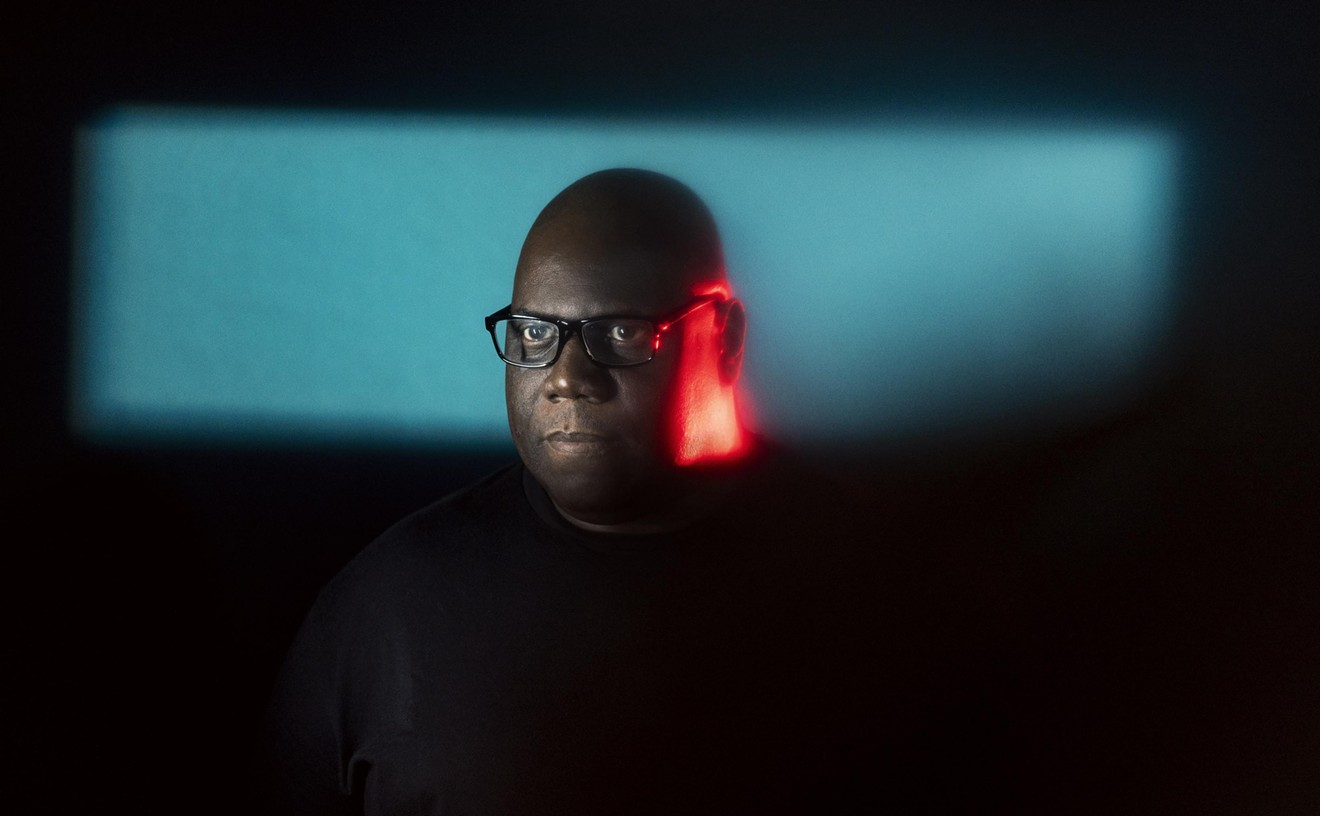PBO is a big, burly 28-year-old DJ and producer. Physically and emotionally, he resembles something of a grizzly bear, someone who can comfort you with a soft, whispering voice or rattle your nerves with loud, threatening tones. But he didn't invite Basshead all the way out to Westchester to wax philosophic about life and music. For the past few days, he's been sharing various details about a long-simmering beef he has with Chocolate Industries, a record label he co-founded back in 1998 and helped bring to worldwide acclaim. The tension between him and label head Marvin "Seven" Bedard is threatening to explode into a lawsuit, thanks to several thousand dollars he says the latter owes him for various projects, including Ko-Wrecktion, the well-regarded 1999 collaboration with local turntablist DJ Craze as Ko-Wreck Technique; and the recently released Ghetto Blaster.
By all accounts, PBO and Seven used to be best friends. Back in the late Nineties, the two were associated with Schematic: Seven, a wiry, intensely driven black teenager from Perrine, was a part owner; PBO, a Cuban who moved to the Westchester neighborhood from Queens, New York, was one of Schematic's first artists. "At the time, I had a different idea for what I wanted to do with my music," says PBO, "and I think Seven was kind of feeling me." While Schematic concentrated on putting out experimental electronic music, the duo wanted to explore a mix of electronic and hip-hop sounds. But PBO never invested any money in Chocolate Industries; instead he willingly ceded control to Seven in order to concentrate on making music.
At first the partnership was a good combination. PBO's inaugural album, Dirty Dozen (a joint release with Schematic), sold well, and is now considered by electronica fans to be a key transition point in glitch-hop's evolution from Autechre's breakbeat atmospherics to Prefuse 73's deceptively plaintive hip-hop melodies. But soon after production began on the followup, the two started having communication problems. As a result Ghetto Blaster would take roughly three years to complete and cost Chocolate Industries a considerable amount of money.
Then there was "360," an all-star single featuring dreadlocked Boston MC Mr. Lif, Oaktown rapper Del the Funky Homosapien, and DJ Craze that was released in 2000. The next year brought the 360 Remixes EP, on which top producers DJ Spinna, El-P, the Herbaliser, and Kut Masta Kurt reworked the original. Both sold upward of 10,000 copies, an impressive number for an independent label. But the "360" recordings proved to be an expensive undertaking, costing tens of thousands of dollars for everything from airplane tickets for the various performers to fancy vinyl jackets with embossed lettering on the covers. Additionally, PBO grew angry over how the guests earned sizable fees for their work while all he received was "a chump advance" on the album's eventual sales.
The Ghetto Blaster sessions dragged on until April of 2002, when an incensed PBO disappeared from a Chicago recording studio with the album's master tapes after recording a final track with New Yawk MC Aesop Rock called "Shutdown." After returning to Miami, PBO demanded $10,000 in unpaid mechanical royalties, or publishing fees Chocolate Industries owed him in exchange for usage rights to his recordings. He now says he went after his "mechanicals" because, while "mechanicals" are mandated by U.S. law, royalties from album sales are more difficult to collect: Since royalties represent profit, a record company can hypothetically, if illegally, continue to add production costs to make sure an album never breaks even. "There's always a number that can be changed," explains PBO, "an extra charge you can add."
"What a joke! What a fucking joke! Jesus Christ," protests Seven during a phone interview from Chicago. So it's not true that Chocolate Industries owes PBO ten grand? "No, it's not true!" he answers. "How could that possibly happen?"
It's hard to fault him for being irritated. Since moving to Chicago in late 1999, the 25-year-old has built Chocolate Industries into an imprint internationally known for its forward-thinking aesthetics, graffiti-inspired album artwork, and uniquely evocative stars like chanteuse Via Tania (Under a Different Sky) and Chi-town MC Diverse (Move EP). There's a new co-owner, too, in Chris Eichenseer. Like everyone else in the Windy City's dynamic, workaholic arts scene, Eichenseer also co-owns a graphic design firm (Some Odd Pilot), a rock label (Some Odd Pilot Records), and plays in a space-rock band (the Timeout Drawer). Finally, the vision Seven and PBO once shared of a label that blurred the genre lines between modern music styles is being realized. But for all his current and future success, the white-hot maverick can't seem to put Miami behind him.
To his credit, Seven takes time out of a busy schedule that includes a stint as guest editor for a "Chicago-themed" issue of the L.A.-based culture mag Anthem to fax over several pages of documents. There is a tally of costs for the "360" singles; "Fly (You Ain't)," a high-powered twelve-inch single featuring MCs Vast Aire of Cannibal Ox, Akrobatik, and Maintain; and recording contracts for Dirty Dozen and Ghetto Blaster. They show that PBO is actually some several thousand dollars in debt to Chocolate Industries. He even reasonably claims that Ghetto Blaster's mounting expenses jeopardized his contract with Forced Exposure, a widely respected distributor of cutting-edge record labels that initially put up the money for the sessions, then began charging them back to Chocolate Industries' account when they dragged on longer than expected.
In a separate interview, Forced Exposure owner Jimmy Johnson does admit that the Ghetto Blaster project caused some friction between Seven and himself. He adds that he's definitely on Seven's side when it comes to PBO. "Edgar released a single on Skam and it didn't do nearly as well as his Chocolate Industries stuff," says Johnson, an unfair comparison considering that the enigmatic Manchester label best known for launching the atmospheric electronic duo Boards of Canada's career usually sticks to small pressings of limited-edition vinyl. Still he readily asserts that PBO has "an international reputation" that "wouldn't have been possible without Chocolate Industries."
In a way, PBO's story is an unusual but welcome one. Independent record companies don't get the same financial scrutiny as their major-label counterparts, whose inner workings, scrupulous and otherwise, are carefully detailed in the pages of Billboard and Rolling Stone magazines.
But that doesn't mean indies are preternaturally fair and upstanding businesses. Rumors abound in the underground hip-hop scene of rap groups being systematically ripped off by record labels. Most fans never hear these stories because the money in question is minuscule compared with the millions a major label can squeeze out of its artists through creative bookkeeping. Too often, musicians struggle to make ends meet with a patchwork of small royalty checks and live performances. For an impoverished artist, a $3000 check is the difference between paying the rent and couch-surfing at a friend's house.
Seven is not a crook. According to the contracts and invoices sent to Basshead, his business relationship with his onetime friend was a legally sound if emotionally dysfunctional one. But a few troubling questions remain. If PBO was taking so long to finish Ghetto Blaster, why did Seven contribute to the delay by goading him into recording more tracks with underground rap stars? Certainly, the "360" recordings were a win-win situation for everybody, garnering Chocolate Industries and PBO the attention of the backpackers and college radio jocks fueling the underground hip-hop scene, a sizable and growing market that had previously eluded them.
More problematic is what happened after PBO left Chicago with the Ghetto Blaster masters in April of last year. After he demanded $10,000 in "mechanicals," Seven verbally agreed to pay $7500 in exchange for the masters. He drafted a settlement agreement with his lawyer and sent it to PBO; PBO signed it and sent it back to Seven along with the masters. But Seven never signed the agreement, and now says he duped PBO "in order to get the masters to the album."
Last month Chocolate Industries finally released Ghetto Blaster to little public fanfare. For sure, it's a worthy sophomore effort, a rougher, loop-based transition from Dirty Dozen's keyboard compositions. But Chocolate Industries, understandably stung by PBO's "shit talking," isn't doing much to promote it beyond a handful of ads in magazines like Vice and Elemental. After all that's happened, the album represents a dark point in the label's history. "Honestly, I just want to move on with my life," says Seven.
PBO seems determined to move on, too, and is currently working on another album. But he isn't aware of Seven's subterfuge until Basshead points it out to him during a phone interview. "Oh, I've got a version of the settlement with his signature on it," he retorts dismissively.
Then, a day later, PBO calls back, panic-stricken. "Seven is a shady motherfucker," he says, clearly distressed at the realization that he has been played "like a sucker." For the next several minutes he curses Seven's name, sounding erratic, depressed, and completely disillusioned by the record industry.
Why is PBO letting Seven get to him? Why doesn't he just work with another label? "Music is a sacred thing," he announces in a pained voice. "But to go through this stress, this shit ... I'd rather flip burgers."










